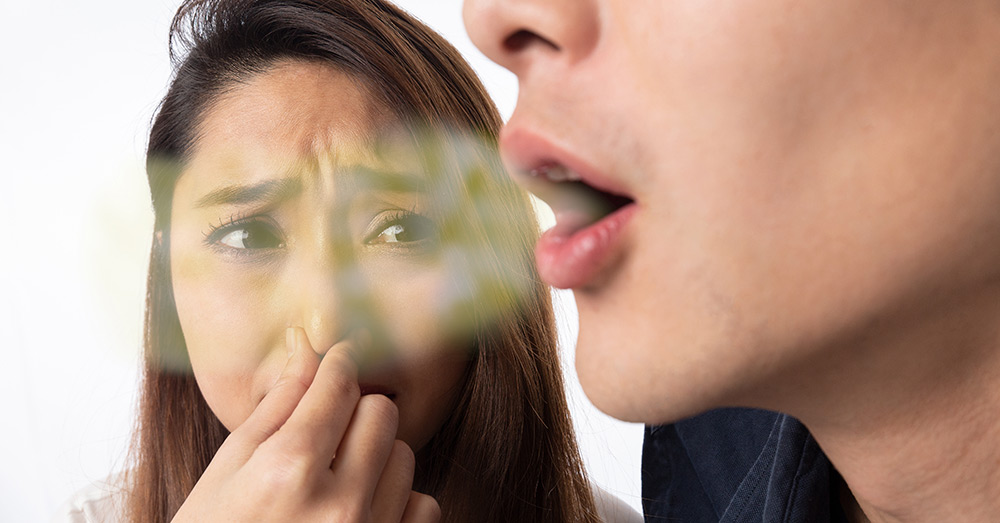Generally, mouthwash, brushing your teeth, or even having some mint, can quickly solve a moment of bad breath. However, there is something called “halitosis”, or chronic bad breath, that the above-mentioned cannot solve. Unlike “morning breath” or a strong smell that stays after a special lunch, halitosis is the presence of bad breath for an extended amount of time, and it can be the consequence of a more serious issue. Dr Mustafa El Beheiry gives us valuable advice to follow.
What can halitosis indicate?
Dr. Mustafa El Beheiry explains that chronic bad breath that cannot be solved quickly by common solutions (cited above) means you either have issues with your dentalor general health.
- Dental issues have to be checked by a dentist. Commonly, cavities and deeper pockets from gum disease allow bacteria (specially the anaerobic) to stay lodged in your mouth and become difficult to remove when you’re brushing your teeth yourself. This leads to halitosis. Your dentist can help to identify this and treat it.
- General health issues can come from mouth, tonsils, nose and throat infections, but also from dry mouth and tobacco. More often than not, halitosis is linked to oral issues. However, rarely can also be a sign of gastric reflux, diabetes, or liver/kidney disease. Always check with health professionals when you have doubts.
How do I deal with halitosis?
Following a proper oral hygiene routine is the best way to avoid and reduce halitosis. By cleaning your teeth properly, you avoid cavities and reduce the development of gum disease.
Dr. El Beheiry recommends that individuals visit the dentist for a check-up and cleaning twice a year. If a person has gum disease, he states that professional cleaning may be necessary to clear out the build-up of bacteria in pockets between the gums and teeth.
Always check with your dentist to see whether he recommends you start by following a healthy daily dental routine (i.e. brushing twice a day for two to three minutes with a toothpaste that includes an antibacterial agent) or antibacterial mouthwash, as well as clean between your teeth once a day. Other habits, like drinking plenty of water, chewing sugarless gum with the ADA Seal of Acceptance, and cutting back on caffeine may also help get your saliva flowing and boost the freshness of your breath.
For effective oral care products, we recommend the Elgydium product!




